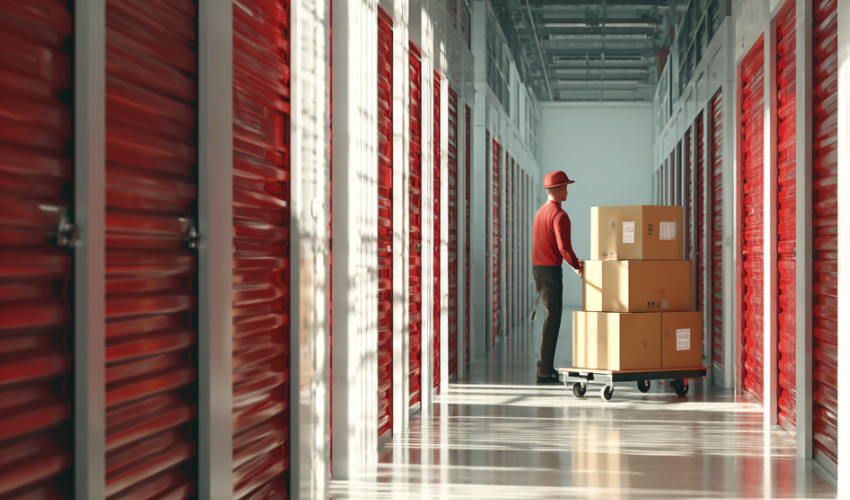Why Do People Use Self Storage

When space at home starts to feel like a luxury, many people turn to self storage for a practical solution to reclaim their living areas. The most common reason to use a storage unit is to free up space without throwing away items you still value. Storage units offer flexibility, letting homeowners and renters store items short or long term while keeping their living space clear. This simple change can reduce stress and make daily life more comfortable.
For those renting or downsizing, storage is often a better option than rushing to buy or move into a larger property. Instead, you can keep sentimental items, seasonal furniture or spare clothes safe off-site until you’re ready to bring them home, without feeling forced to throw things out prematurely. For people renovating or relocating, units also serve as temporary staging spaces, helping to protect belongings from dust, damage or being misplaced.
Booking Storage in Advance
While many think storage is just drop-in and go, planning ahead can save frustration and money. Competitive articles barely mention this, but in reality, popular units, especially near cities or during peak moving months, get booked quickly. By reserving your space early, you can secure the right-sized unit and sometimes lock in lower rates.
Leaving it until the last minute often means only smaller or pricier units are available. In some cases, you may even have to settle for a location further away. Giving notice early allows the provider to prepare and helps you avoid rushed packing or higher costs. This small step can make a big difference in how smooth the move-in process feels.
Making More Room for Life
Competitor blogs like Ready Steady Store focus on turning storage into study spaces or workshops, but they skip over the impact on home life. Self storage allows your home to function as it should. That spare room can stay a bedroom, not a dumping ground for clutter. Your garage can be used for your car again, not just stacked with boxes.
People also use storage for business inventory, side hustles, or hobbies. Storing stock or equipment in a unit instead of at home keeps things organised and prevents business overflow from taking over your living space. It also means you can scale up without having to rent costly warehouse space.
Security and Peace of Mind
Security is often glossed over in other articles, but it’s a big reason people choose storage. Modern facilities have gated access, 24/7 CCTV, alarm systems, and individual locks. Some even use biometric entry. For many, this level of security is higher than what they have at home. Knowing belongings are in a monitored environment gives peace of mind, especially during stressful transitions like moving or travel.
Storing Vehicles: Cars, Motorcycles and More
One area rarely covered in detail is vehicle storage. Whether it’s storing a motorcycle in storage that you’re not using or a classic car that needs shelter over winter, vehicle storage is a popular option. These units keep your vehicle safe from theft, weather damage, and pests. Some facilities offer indoor or climate-controlled spaces, ideal for long-term care.
Motorcycles can be stored with covers and mats to prevent leaks or tyre marks, while cars may need additional preparation, such as disconnecting the battery or using a trickle charger. Always check insurance and access policies, as some facilities have specific requirements for stored vehicles.
Other Common Reasons People Use Storage
The motivations are broad but clear. People store furniture during home renovations, keep belongings safe while travelling abroad, or store seasonal items like garden furniture, sports gear, and decorations to avoid clutter. Businesses often use storage for documents, tools, or surplus inventory. Some even use it for short-term needs, like staging a house for sale.
What makes self storage appealing is how flexible it is. You’re not tied to long contracts; most providers offer rolling monthly agreements. You can upsize or downsize your unit as your needs change. If plans change suddenly, ending your rental early is usually no problem as long as you follow notice rules. This adaptability suits everything from quick moves to long-term arrangements.
